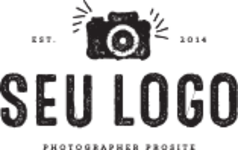Global Athletic Footwear Industry: Key Statistics and Insights in 2025-2033
Summary:
- The global athletic footwear market size reached USD 126.0 Billion in 2024.
- The market is expected to reach USD 176.2 Billion by 2033, exhibiting a growth rate (CAGR) of 3.76% during 2025-2033.
- Asia Pacific leads the market, accounting for the largest athletic footwear market share.
- Running shoes dominate the market share in the product type segment.
- Specialty stores constitute the largest segment within the athletic footwear industry.
- Men represent the key end-user segment.
- Growing trends in health and fitness are a major driving force behind the athletic footwear market.
- Innovations, technological advancements, and the rise of e-commerce platforms are transforming the athletic footwear market.
Industry Trends and Drivers:
- Innovation and technological advances:
Companies work hard to preserve a competitive advantage by investing in research and development (R&D) to launch new innovations. These innovations cover a wide range of topics, including materials science, biomechanics, and production procedures. By leveraging cutting-edge technology, marketers can increase footwear performance aspects such as cushioning, stability, and energy return. Furthermore, technical improvements make it easier to create footwear styles that suit athletes' strict requirements while simultaneously appealing to the aesthetic preferences of fashion-conscious consumers. This persistent pursuit of innovation guarantees that sports footwear remains a top choice for both functionality and style.
- Rising health and fitness trends:
Individuals are increasingly prioritizing physical exercise in their daily routines, whether through running, gym workouts, or outdoor sports, which is boosting demand for performance-enhancing and supportive footwear. This requirement goes beyond basic functionality, as consumers look for specialized elements that improve stability, cushioning, and overall comfort throughout diverse activities. Furthermore, as individuals become more aware of the health benefits of an active lifestyle, they are investing in high-quality athletic footwear to help them achieve their fitness goals. This trend reflects a broader cultural change toward prioritizing health and well-being, with athletic footwear functioning as both a functional tool and a statement of devotion to an active lifestyle.
- Growing emergence of e-commerce platforms:
The rise of e-commerce platforms is changing the way athletic footwear businesses interact with customers and distribute their products. Brands may overcome regional constraints and reach a larger audience by exploiting online shopping platforms. This increased reach enables them to more effectively target specific consumer categories, customizing marketing strategies and product offerings to various preferences and needs. The convenience of online purchasing improves the customer experience by giving 24-hour access and eliminating the limits of traditional store locations. Furthermore, e-commerce platforms provide a diverse range of possibilities, from new releases to unique partnerships, appealing to the ever-changing preferences of discerning customers.
Grab a sample PDF of this report: https://www.imarcgroup.com/athletic-footwear-market/requestsample
Athletic Footwear Market Report Segmentation:
Breakup By Distribution Channel:
- Supermarkets and Hypermarkets
- Specialty Stores
- Brand Outlets
- Online Channels
Specialty stores represent the largest segment, as they provide expert advice, a wide selection of brands, and a focused shopping experience.
Breakup By End User:
- Men
- Women
- Kids
Men hold the biggest market share attributed to higher participation rates in various athletic activities.
Breakup By Region:
- North America (United States, Canada)
- Asia Pacific (China, Japan, India, South Korea, Australia, Indonesia, Others)
- Europe (Germany, France, United Kingdom, Italy, Spain, Russia, Others)
- Latin America (Brazil, Mexico, Others)
- Middle East and Africa
Asia Pacific dominates the market due to the increasing health consciousness among individuals, high sports participation rate, and the presence of major sports brands.
Top Athletic Footwear Market Leaders:
The athletic footwear market research report outlines a detailed analysis of the competitive landscape, offering in-depth profiles of major companies. Some of the key players in the market are:
- Adidas AG
- ASICS Corporation
- FILA Holdings Corp
- K-Swiss Inc.
- New Balance Inc.
- Nike Inc.
- Puma SE
- Reebok International Ltd.
- Saucony
- SKECHERS Inc.
- Under Armour Inc.
If you require any specific information that is not covered currently within the scope of the report, we will provide the same as a part of the customization.
About Us:
IMARC Group is a global management consulting firm that helps the world’s most ambitious changemakers to create a lasting impact. The company provide a comprehensive suite of market entry and expansion services. IMARC offerings include thorough market assessment, feasibility studies, company incorporation assistance, factory setup support, regulatory approvals and licensing navigation, branding, marketing and sales strategies, competitive landscape and benchmarking analyses, pricing and cost research, and procurement research.
Contact Us:
IMARC Group
134 N 4th St. Brooklyn, NY 11249, USA
Email: sales@imarcgroup.com
Tel No:(D) +91 120 433 0800
United States: +1-631-791-1145

